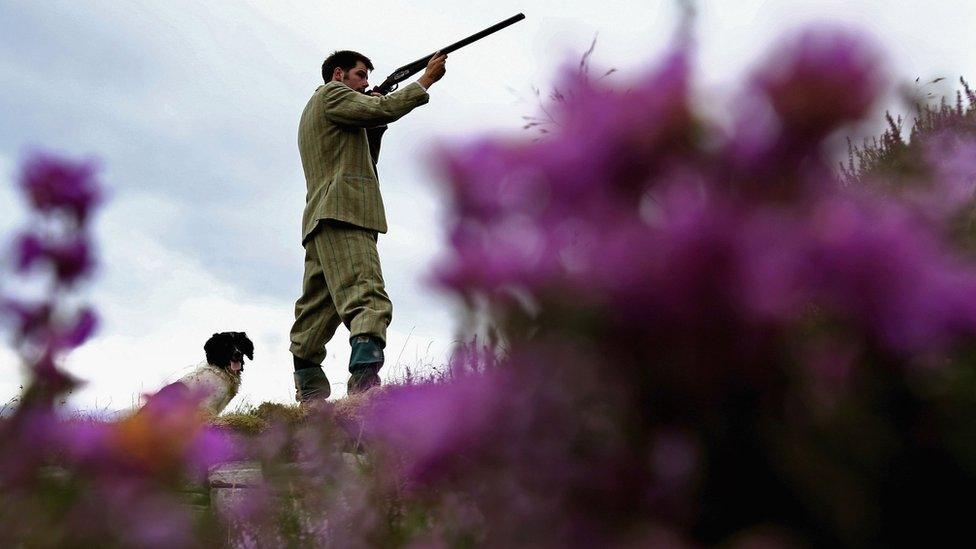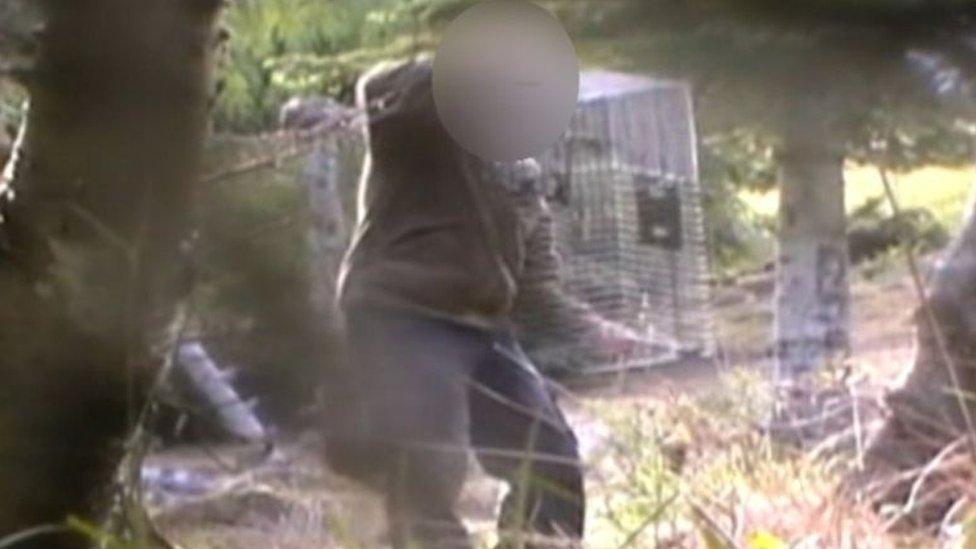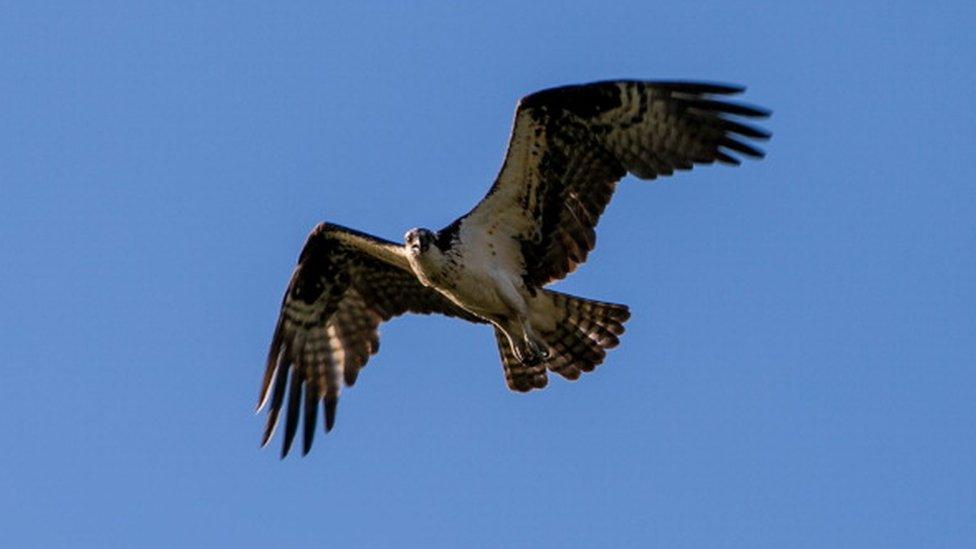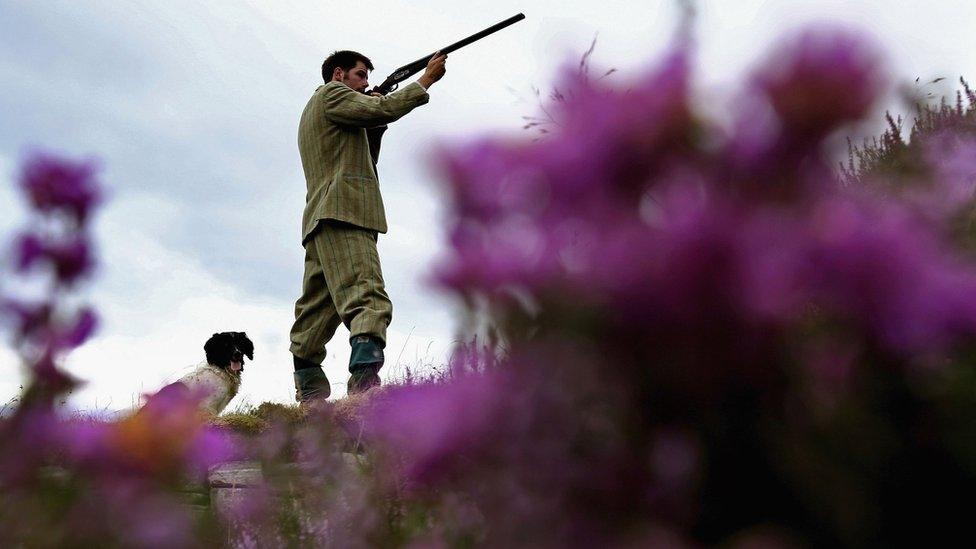Grouse shooting braced for poor season
- Published

Grouse shooting estates are braced for a "disappointing" start to the season, which began on Saturday with the traditional 'Glorious Twelfth'.
Low bird numbers mean many estates are delaying the start of the season, with some preparing themselves for no shooting at all.
It comes at a time when they are being heavily scrutinised by the Scottish government and conservation groups.
Wildlife campaigners want estates to be licensed to help protect birds of prey.
RSPB Scotland said estates should be licensed because self-regulation had not worked.

Grouse shooting at the Finzean estate has been cancelled
The grouse shooting season lasts from 12 August to 10 December in Scotland.
The Finzean Estate in Aberdeenshire has already cancelled its shooting programme after a disappointing bird count.
Among the purple carpet of heather on the high moors there are no signs of the small red birds.

There are few birds to be found amid the heather on the estate
Gamekeeper Hedge Shand said: "It's really disappointing because of all the work you put into the moor all season and you expect to get some sort of shooting programme.
"You go in and count them and are getting only two in a covert when you are looking for six, seven or eight. That's when you can shoot the surplus."
The tradition of the 'Glorious Twelfth' goes back hundreds of years and there have always been good years and bad.

Managers still have to maintain the estate for future years
This is the second consecutive poor season at Finzean and for landowner Andrew Farquharson that is costly.
He said: "Financially, obviously, it hits the estate income but having said that, grouse moor management is an ongoing thing so we won't abandon the moor.
"We'll carry on doing our heather burning, our butt maintenance and our road repairs, so from that respect the management doesn't change."

The stones butts, where shooting participants hide from their targets, can be susceptible to damage from wind, rain and snow. This year, the repairs are the only activity they'll see.
The shooting industry is under great scrutiny from the Scottish government and conservation groups.
There is a review into fox hunting being considered by ministers, high-profile cases of raptor persecution and now a debate about whether these shooting estates should be licensed.
Tim Baynes, from the Scottish Moorland Group, said: "The idea that you would have a licence that could be taken away is very draconian and really doesn't fit with the sort of style of management that you have to do here.
"It would be open to abuse, we know, because of some of the people who oppose grouse shooting. We think that's a real danger and largely we believe it's just totally unnecessary."
Reach a consensus
On the other side of the licensing argument is RSPB Scotland who have long supported the principle which, they say, works well in other countries.
Head of Investigations Ian Thomson said: "We feel that regulation is the only way forward. Self-regulation has failed.
"We'd like to see a situation where a right to shoot has to be dependent on both sustainable and legal management of our uplands."
The two sides of this argument are unlikely to reach a consensus on the licensing of shooting estates, especially at such an emotive time of the year.
There's little desire politically to bring an end to this industry either, with its estimated economic value of £155m.
This year's poor bird numbers are a disappointing blip, but they come in an industry which is showing signs of long-term growth.
- Published26 May 2017

- Published26 May 2017

- Published25 February 2017
